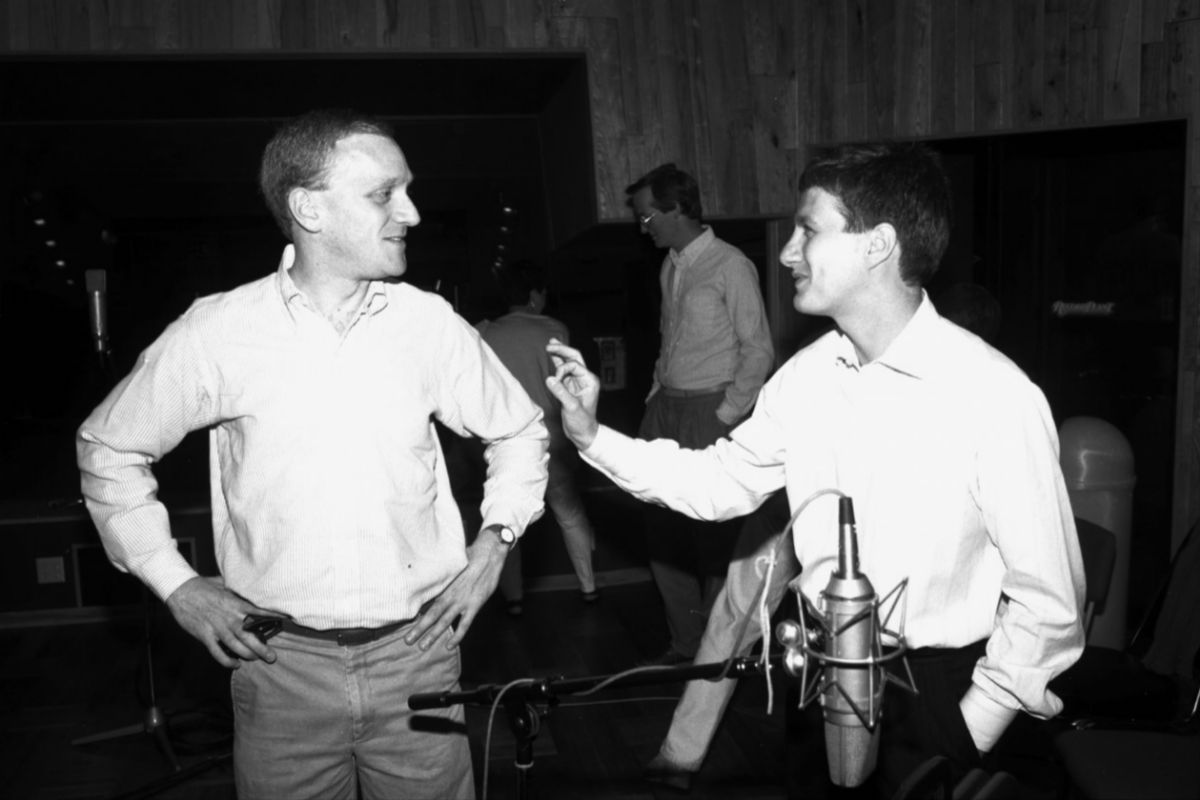- Disney: Golden Age with No Acceptable Wages
With Indians and plastic jeans, colored lights and disguised in his parents' clothes, little Howard Ashman was able to create authentic universes in his room to entertain his sister Sarah and dedicate himself to what he liked most: telling stories . Neither Howard nor Sarah could suspect at the time that a few years later, that calm and imaginative child would be a cornerstone of the second golden age of the Disney factory . That vital journey, which includes his arrival in the world of Broadway musicals, his creative alliance with composer Alan Menken and his lost fight against AIDS, takes shape in Howard, a documentary available on Disney + from August 7.
Through videoconference, Don Hahn, director of the documentary and former collaborator of Ashman as producer of Beauty and the Beast , tells us why this piece of goldsmithing from archive material in tribute to a genius almost unknown to the Big audience. "By working with him hand in hand I discovered that he was not only a brilliant person, but also a great person, and I wanted to have the opportunity to tell his story now, even if it is 30 years after his premature goodbye . Many people knew the letters of his songs, but very few knew who Howard really was, "summarizes Hahn.
Thus, through old photos and VHS tapes , old recordings of song demos and answering tapes, the viewer delves into the biography and creative process of a guy who seemed destined to end up at Disney: his thesis. Master in Theater Direction at Indiana University was adapted from Snow White .
In the documentary it is Howard himself who tells his story through fragments of interviews and recordings assembled by Hahn who, thanks to a long process of investigation, also managed to collect testimonies and materials that help to better understand Ashman and his overflowing energy creative . If his arrival at Disney was a before and an after, both in his career and in that of the mouse's own house , his previous career is even more interesting: to found an independent theater in the vibrant and dark New York of the 70s , to adapt to the musical God bless you, Ms. Rosewater by Kurt Vonnegut or The Shop of Horrors , that Roger Corman Z-series film that Ashman ended up turning into a Broadway off-off musical and cult film . His always strained relationship with theatrical producers and a devastating New York Times criticism that put his adaptation of Smile to the ground led him to a trailer installed in a parking lot outside Los Angeles, where a young Disney animation team He was trying to regain lost glory .
"A lot of what Howard did had to do with picking up the idea of making a Broadway musical in an animated version ," explains Don Hahn. "What I was looking for was for the most exciting and momentous moments in history to be told through songs." Ashman himself explains it with his proverbial eloquence: "Musicals need a very simple, direct and compelling plot structure. The first thing to do when preparing an adaptation is to make the story coherent ."
And he applied it to the letter. The best songs from The Little Mermaid, Aladdin, and Beauty and the Beast bear their seal and Alan Menken's: they manage to present the characters and bring to the table the conflicts that advance the narrative, always with the touch of ingenuity characteristic of both . Although it was not always easy to work with him: "He would have been a great lawyer, he was the type of person capable of defending his point of view tooth and nail. In every decision that had to be made, and in a film hundreds of decisions were made Every day, I could give you five or six reasons why his point of view was correct. And worst of all, he was almost always right . Howard was a catalyst for us, someone who was there at the right time. Young animators wanted to show that they could make movies as good as the ones Walt Disney and his animators had designed years ago. "
While it was all good news in his professional career, his health began to crack. His diagnosis as HIV-positive did not prevent him from working for nearly two years, jealously keeping the secret of his illness : he was afraid of being judged and stigmatized and did not know how Disney's capitostes would react to the news. "At first we thought she was behaving like a diva, but after a while it became clear that it was all due to her delicate state of health," recalls Hahn. "What we did was move the entire production of Beauty and the Beast to New York. I was there, living in a hotel for several weeks. I even brought a piano for Alan Menken ... Howard brought donuts every day and we reviewed every scene and every song. Alan played the piano and Howard sang, we were correcting things as we went ... it was a very intense few months. " Thus, the man "who gave a mermaid her voice and a beast her soul", as a figure in the dedication that closes the film, brought to the world her latest songs, awarded with a posthumous Oscar.
According to the criteria of The Trust Project
Know more- culture
- movie theater
- music
CineEnnio Morricone, The Master pushed by the experimental impulse
CultureThe cultural recommendations of Ángeles Muñoz, from Camela
Music10 Ennio Morricone soundtracks for history
See links of interest
- Last News
- English translator
- TV programming
- Quixote
- Work calendar
- Daily horoscope
- Santander League Ranking
- League calendar
- TV Movies
- Themes
- FC København - Istanbul Basaksehir
- Shakhtar Donetsk - VfL Wolfsburg
- Internazionale - Getafe
- Manchester United - LASK

